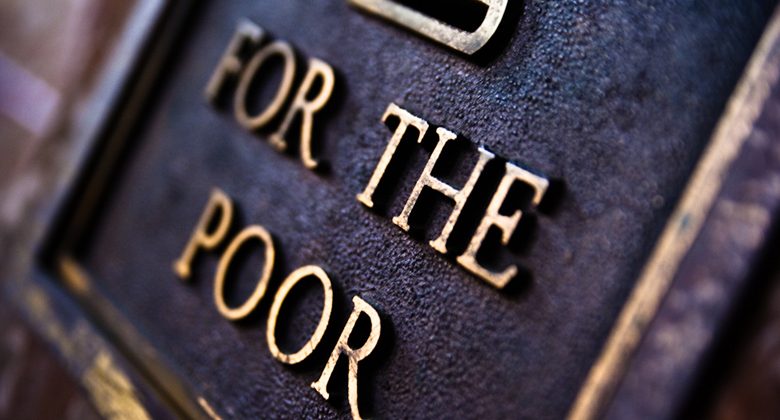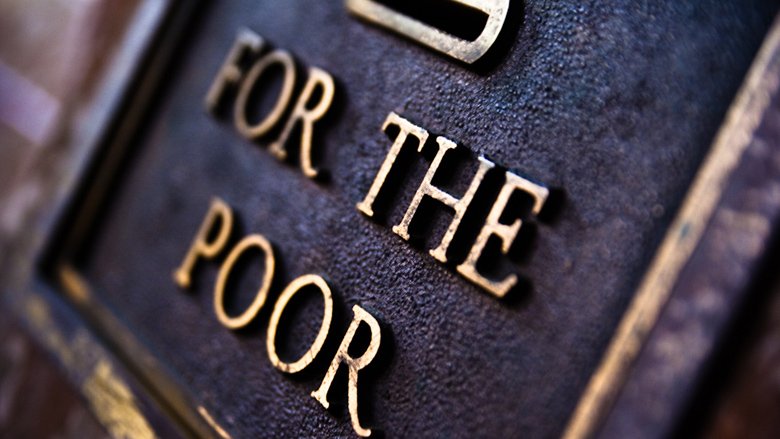

Here is a taste of David Bentley Hart’s recent piece at Jacobin:
Most modern (and especially most American) Christians are quite accustomed, for instance, to thinking of Christianity as a fairly commonsensical creed as regards the practicalities of life. On the matter of wealth, they take it as given that, while the New Testament enjoins generosity to the poor, it otherwise allows the wealthy to enjoy the fruits of their industry or fair fortune with a clean conscience. Common sense tells them that it is not wealth as such that the New Testament condemns, but only a spiritually unhealthy preoccupation with it — the idolatry of riches, wealth misused, wealth immorally gained; riches in and of themselves, surely, are neither good nor bad. But in fact, one thing in startlingly short supply in the New Testament is common sense, and the commonsensical view of the early church is invariably the wrong one. In point of fact, the New Testament, alarmingly enough, condemns personal wealth not merely as a moral danger, but as an intrinsic evil. Actually, the texts are so unambiguous on this matter that it requires an almost heroic defiance of the obvious to fail to grasp their import. Admittedly,
Take, for example, the word used in Christian scripture for one of the principal virtues of the new movement: κοινωνία, or koinōnia. The standard translations of the term are usually something along the lines of “fellowship” or even “community,” but a more accurate rendering might very well be “communism.” At least, in the texts themselves, it is quite clear what practices were entailed in cultivating koinōnia: the first converts of the apostolic age in Jerusalem, for example, as the price of becoming Christians, sold all their property and possessions and distributed the proceeds to those in need, and then fed themselves by sharing their resources in common meals (Acts 2:43–46). And this was the pattern, it seems, of the greater community of the Way as it spread out into the Eastern reaches of the empire. It could scarcely have been otherwise, really, so long as there was anything like a living memory of the teachings of Jesus (at least, as they are recorded in the “logia” traditions of the gospels).
Certainly, Jesus condemned not only an unhealthy preoccupation with riches, but the getting and keeping of riches as such. The most obvious example of this, found in all three synoptic Gospels, would be the story of the rich young ruler who could not bring himself to part with his fortune for the sake of the Kingdom, and of Christ’s astonishing remark about camels passing more easily through needles’ eyes than rich men through the Kingdom’s gate. But one can look everywhere in the gospels for confirmation of the message. Christ clearly means what he says when quoting the prophet Isaiah: he has been anointed by God’s Spirit to preach good tidings to the poor (Luke 4:18). To the prosperous, the tidings he bears are decidedly grim: “But alas for you who are rich, for you have your comfort. Alas for you who are now replete, for you will be hungry. Alas for those now laughing, for you will mourn and lament” (Luke 6:24–25).
He not only demands that his followers give freely to all who ask from them (Matthew 5:42), and to do so with such prodigality that one hand is ignorant of the other’s largesse (Matthew 6:3); he explicitly forbids storing up earthly wealth — not merely storing it up too obsessively — and allows instead only the hoarding of the treasures of heaven (Matthew 6:19–20). He tells all who would follow him (as he tells the rich young ruler) to sell all their possessions and give the proceeds away as alms, thereby supplying that same heavenly treasury (Luke 12:33), and explicitly states that “no one of you who does not bid farewell to all his own possessions can be my disciple” (Luke 14:33). It is truly amazing how rarely Christians down the centuries have failed to notice that these counsels are stated, quite decidedly, as commands. Certainly the texts are not in any way unclear on the matter. After all, as Mary says, part of the saving promise of the Gospel is that the Lord “has filled the hungry with good things and sent the rich away empty” (Luke 1:53).
This same moral implacability on matters of social justice, moreover, positively saturates the pages of the New Testament as a whole. One sees it, for instance, in the frequent condemnations of πλεονέξια, or pleonexia (often translated as “greed,” but really meaning all acquisitive desire), and αἰσχροκερδής, or aischrokerdēs (often translated as “greed for base gain,” but really meaning “the baseness of seeking gain” for oneself). James perhaps states the matter most clearly:
“Come now, you who are rich, weep, howling out at the miseries that are coming for you: your riches have spoiled and your garments have become moth-eaten; your gold and silver have corroded, and their corrosion will serve as testimony against you and will eat your flesh like fire. You have kept treasure in the last days. Look: the wages of the workers who have reaped your lands, which have been unfairly held back by you, clamor aloud, and the outcries of those who have reaped have entered the ears of the Lord Sabaoth. You lived on the earth in dainty luxury and self-indulgence. You have gorged your hearts on a day of slaughter. You have condemned — have murdered — the upright man; he does not oppose you. (5:1–6)”
And this passage is merely the climax of a moral crescendo that swells throughout the epistle, beginning with James’s assurance to his readers that God has “chosen the destitute within the cosmos, as rich in faithfulness and as heirs of the Kingdom he has promised to those who love him,” while the rich are, as an entire class, oppressors and persecutors and blasphemers of Christ’s holy name (2:5–7).
It was all much easier, of course — this nonchalance toward private possessions — for those first generations of Christians. They tended to see themselves as transient tenants within a rapidly vanishing world, refugees passing lightly through a history not their own. Their attachments to the larger society were tenuous at best, and pervaded by more than a hint of apocalyptic irony. But as the initial elations and expectations of the gospel faded and the settled habits of life in this depressingly durable world emerged anew, the distinctive practices of the earliest Christians gave way to the common practices of the established order.
Even then, the shift was not exactly abrupt. Near the end of the first century, the manual of Christian life known as the Didache instructed believers to share all things in common and to think of nothing as private property. The first Christians of the Syrian city of Edessa no sooner converted than they disposed of their belongings. Well into the second century, the pagan satirist Lucian of Samosata (c. 125–c. 181 CE) could report that Christians viewed possessions with contempt and owned all property communally. The Christian apologist Justin Martyr (c. 100–165 CE) proclaimed that to be Christian was to seek wealth no longer, but instead to make a common fund of all possessions for redistribution to the needy. Even Clement of Alexandria (c. 150–c. 215 CE), who was the first significant theologian to assure a new rising class of propertied Christians that they could retain something of their possessions so long as they cultivated poverty of spirit, did so only grudgingly. He still called private property the fruit of wickedness, and insisted that ideally all goods should be available for common use. Tertullian (c. 155–c. 240 CE) observed that Christians found a complete community of goods easy because they already shared a common soul and mind.
Even in the late fourth century, Basil the Great (330–379 CE) could bluntly state that there is no right to private property, that no one should have more than what is necessary, and that the rich seize what properly belongs to all equally and then claim it for their own simply because they got to it first. For him, private property was theft — bread stolen from the hungry, clothing stolen from the naked, money stolen from the destitute. Anyone, he said, possessing more than his neighbor has failed in duty to the poor and in Christian love. His brother, Gregory of Nyssa (c. 335–c.395 CE), concurred. Ambrose of Milan (c. 340–297 CE) refused even to grant that a rich man could make gifts to the poor; he could at most restore what already belonged to them. And sentiments no less uncompromising were voiced by Augustine (354–430 CE) and Cyril of Alexandria (c. 376–444 CE).One does not need to be a scholar of late antiquity to notice how often Jesus speaks of the unfortunate legally despoiled by the fortunate.
And then there was John Chrysostom (c. 349–407 CE), some of whose pronouncements on wealth and poverty make Mikhail Bakunin and Karl Marx sound like timid conservatives. According to him, the chief cause of poverty is the dispersion of goods in private holdings, which produces both prodigality and parsimony. The rich are thieves, even if their property comes to them legally through enterprise or inheritance, since everything belongs to all as part of the common human estate. Those who think they work honestly by acquiring money, conducting business, and guarding their belongings are actually just corrupt idlers, recreants from the true work of charity. All we possess actually belongs to everyone, and no Christian should ever utter the words “yours” and “mine.” And he said much of this in sermons while he was Archbishop of Constantinople (which won him few friends among the rich and powerful).
That such language, however, could still be heard in the heart of imperial Christendom indicates that it had by that time lost much of its force. It could be tolerated to a degree, but only as a bracing hyperbole proper to a particular religious grammar — an idiom, that is, rather than an imperative. Christianity was ceasing to be the apocalyptic annunciation of something unprecedented and becoming just the established devotional system of its culture, offering all the consolations and reassurances that one demands of religious institutions. The original provocation of the early church would persist in isolated monastic communities and occasionally erupt in ephemeral “purist” movements — Spiritual Franciscans, Russian Non-Possessors, the Catholic Worker Movement — but, in general, Christian adherence had become chiefly just a religion, a support for life in this world rather than a radically different model of how to live.
Read the entire piece here.